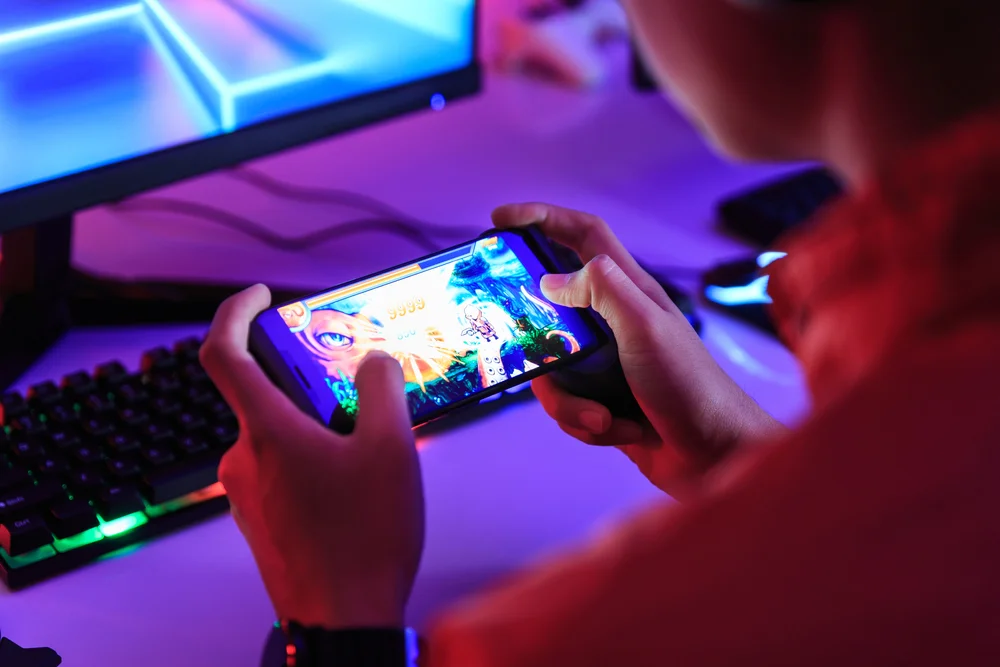Keeping your brain sharp is very important as doing so improves cognitive function while also slowing down the aging of the brain. There are many ways to boost brain power, with brain-training games often recognized as one of the best ways of doing so.
Numerous studies show that playing the right brain-boosting games can improve memory, attention spans and levels, logic, problem-solving, critical thinking, and other cognitive function metrics. Knowing all this, which games should you play for the most significant boost in brain power?
Apple Has Added 20 New Games To Apple Arcade
1. Chess

Chess has been around for about 1400 years in various forms and formats, garnering a cultural and intellectual significance that most other games have not. It is played between two players – some modern versions allow up to four players – each with different pieces. It is played on an 8X8 checkered board, with players moving their pieces on the squares on the board.
The aim of chess is to capture or trap the opponent’s king or get into positions that leave them with no advantageous moves.
Chess is a game of strategy as players have to think not only about their moves but also about the moves their opponent is likely to play and the outcome of each move or decision by either player. While doing all this, they also have to think about creating situations where they get their opponent in trouble or give themselves an advantage.
Because of how much thinking, planning, problem-solving, and analysis goes into a chess game, it is fair to say that it is one of the best games for boosting brain power.
2. Crosswords

Crosswords have also been around for a long time and are related to games like Scrabble. Players are given a grid with some squares numbered to indicate where to start placing their answers. They are then given clues whose answers are words that go across or downwards to fill a grid. These words are interlinked, meaning getting a clue wrong can make it harder to fill in other clues even if you get them right.
Crosswords are mainly a vocabulary, problem-solving, and memory game. Players have to decipher what the clues mean and thus their potential answers, recall what words would best fit the grid for those clues, and ensure they do not fill in wrong clues as that would “lock” up the crossword.
3. Scrabble

Scrabble has been around for more than half a century, and it is still bringing out the competitive spirit in players even today. Scrabble combines problem-solving, strategy, and an understanding of vocabulary, all of which help the brain in different ways.
For example, players have to unscramble the letters they receive to create words and place them on the board strategically to either get the most points or to ensure the other players get unfavorable tiles so that they get the least points possible.
Scrabble is an excellent game for people of all ages. It is especially useful for kids who want to enrich their vocabulary and adults who want to learn to focus on specific problem-solving tasks. Players can dominate the game while enriching their vocabulary using a tool or platform that unscrambles random letters into words. Players provide random letters, and the tool or platform gives them words that include them. These tools and platforms also come in handy when playing other word-based games, such as Words With Friends.
4. Rubik’s Cube

The Rubik’s cube is considered an activity or a game depending on who you ask. Regardless, it is one of the most popular puzzles and has been for decades now. It features a cube with painted faces, each with a grid of 3X3 smaller faces. Once scrambled, the aim is for the player to unscramble it to ensure all sides are a single color.
The Rubik’s cube is deceptive in that it looks easy to solve because all you do is move and match faces. Many people do not realize it has 43 quintillion possible solving moves. This high number of possible moves gives you numerous possibilities for solutions but also complicates things if you go down the wrong path.
The Rubik’s cube is great for stimulating their mind, relaxing players, and ensuring they do not remain idle during their downtime.
Does GameStop Buy Games Without Cases?
5. Sudoku

Sudoku is a number and grid-solving game that leverages the player’s short-term memory. It consists of a 9X9 grid within which there are smaller 3X3 grids. The game’s aim is for you to add numbers from one to nine such that each 3X3 grid, horizontal line, and vertical line has one of each number. For example, you cannot have two 9s in a smaller grid, even if they are on different horizontal or vertical lines.
Sudoku requires a lot of planning because you must think ahead of the possibilities and follow a trail that leads you to conclusions on where specific numbers fit. Due to how it is played and what it asks of players, Sudoku is also great at improving concentration, short-term memory, reasoning, and problem-solving.
You can play the game on an app, online, or on a piece of paper. You can also find books with collections of Sudoku puzzles for your enjoyment.
6. Wordle

Wordle is a web-based puzzle that first appeared in the New York Times. Its premise is simple; you have six tries to guess a five-letter word. Each letter you enter that is in the word for the day is highlighted in yellow if it is in the wrong spot or green if it is in the right spot. Letters highlighted in black or gray do not appear in the selected secret word of the day.
Wordle requires that you bring your knowledge of five-letter words, problem-solving, and analysis skills to use the hints you get through the highlighting to get the secret word.
7. Jigsaw Puzzles

Like the Rubik’s cube, most jigsaw puzzles seem simple but are challenging to solve. With jigsaw puzzles, you have a board divided into smaller pieces. When these pieces are placed correctly, they form the image provided on top of the box.
These puzzles are great because they help you work out both the left and right sides of your brain. They require intuition, pattern recognition, intuition, logic, and reasoning skills. They also require short- and long-term memory so you can remember which pieces you have set aside, and which ones are likely to go in the gaps left as you solve the puzzle.
You can get jigsaw puzzles with different numbers of pieces, with the complexity of each puzzle increasing as the number of pieces does.
8. Card Games

There are numerous card games you can play, all involving significant cognitive challenges. If you play blackjack, for example, you have to follow the cards during rounds, keep track of what you have played and what has been played by others, decide the best actions to take, and then decide if those actions are advantageous at that point in the game.
Some card games require strategy and keeping track of scores, gains, losses, and various other aspects of the game.
Keeping your brain active and finding ways to boost your brain power is advantageous and will benefit you in the long term. Games are a great way of doing both, and there are numerous options depending on your age and preferences. They all boost different aspects of your brain power, including memory, reasoning, logic, decision-making, and problem-solving.




